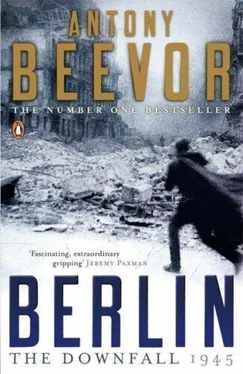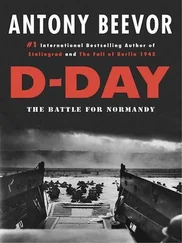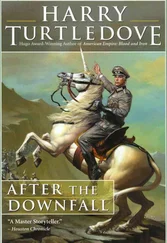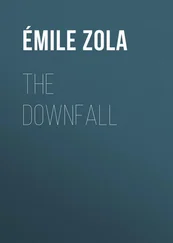2. The ‘House of Cards’ on the Vistula
General Gehlen’s estimates of Soviet strength were certainly not exaggerated. If anything, they were well short of the mark on the threatened sectors. The Red Army had 6.7 million men along a front which stretched from the Baltic to the Adriatic. This was over twice the strength of the Wehrmacht and its allies when they invaded the Soviet Union in June 1941. Hitler’s conviction that summer that the Red Army was about to collapse had proved to be one of the most catastrophic miscalculations in history.
‘We are lost,’ a German sergeant acknowledged in January 1945, ‘but we will fight to the last man.’ Battle-hardened combatants of the Eastern Front had come to believe that it must all end in death. Any other outcome appeared unthinkable after everything that had gone before. They knew what had been done in the occupied territories and that the Red Army intended to exact revenge. Surrender meant being worked to death in Siberian labour camps as a ‘ Stalinpfertf, a ‘Stalin horse’. ‘We no longer fought for Hitler, or for National Socialism, or for the Third Reich,’ wrote an Alsatian veteran of the Grossdeutschland Division, ‘or even for our fiancées or mothers or families trapped in bomb-ravaged towns. We fought from simple fear… We fought for ourselves, so that we wouldn’t die in holes filled with mud and snow; we fought like rats.’
The disasters of the previous year, above all the encirclement and destruction of Army Group Centre, were hard to forget. National Socialist leadership officers, the Nazi imitation of the Soviet commissar, tried to raise the fighting morale of the ordinary German soldier, the Landser, with promises as well as threats of execution for anyone who deserted or retreated without orders. ‘You do not need to fear the Russian offensive,’ they told them. ‘If the enemy start to attack, our tanks will be here in four hours.’ But the more experienced soldiers knew what they were up against.
Although Guderian’s staff officers at Zossen had formed an accurate idea of the date of attack, the information does not seem to have filtered down to the front line. Corporal Alois K., of the 304th Infantry Division, seized as a ‘tongue’ by a Soviet raiding party, told intelligence officers of the 1st Ukrainian Front that they had expected an attack before Christmas, then they were told to expect one on 10 January because it was supposed to be Stalin’s birthday.
On 9 January, after an urgent tour of the three main eastern fronts — Hungary, the Vistula and East Prussia — General Guderian, accompanied by his aide, Major Baron Freytag von Loringhoven, had again gone to see Hitler at Ziegenberg. He presented the latest estimates of enemy strengths, both Gehlen’s compilation and also those of the Luftwaffe commander, General Seidemann. Air reconnaissance indicated that there were 8,000 Soviet planes concentrated on the Vistula and East Prussian fronts. Göring interrupted the army chief of staff. ‘Mein Führer, don’t believe that,’ he said to Hitler. ‘Those are not real planes. Those are just decoys.’ Keitel, in a sycophantic show of resolution, smashed his fist down on the table. ‘The Reichsmarschall is right,’ he declared.
The meeting continued as a black farce. Hitler repeated his view that the intelligence figures were ‘completely idiotic’ and added that the man who compiled them should be locked in a lunatic asylum. Guderian retorted angrily that since he supported them completely, he had better be certified as well. Hitler refused out of hand the requests of General Harpe on the Vistula front and General Reinhardt in East Prussia to withdraw their most exposed troops to more defensible positions. He also insisted that the 200,000 German troops trapped on the Courland peninsula in Latvia should remain there and not be evacuated by sea to defend the Reich’s borders. Guderian, disgusted with the ‘ostrich strategy’ of Führer headquarters, prepared to take his leave.
‘The Eastern Front,’ said Hitler, suddenly trying to charm him, ‘has never before possessed such a strong reserve as now. That is your doing. I thank you for it.’
‘The Eastern Front,’ Guderian retorted, ‘is like a house of cards. If the front is broken through at one point all the rest will collapse.’ Ironically, Goebbels had used exactly the same simile in 1941 about the Red Army.
Guderian returned to Zossen in ‘a very grave mood’. He wondered whether Hitler and Jodl’s lack of imagination had something to do with the fact that they both came from parts of the Reich — Austria and Bavaria — which were not threatened. Guderian was a Prussian. His homeland was about to be ravaged, and probably lost for ever. Hitler, to reward his great panzer leader for his successes early in the war, had presented him with the expropriated estate of Deipenhof in the Warthegau, the region of western Poland which the Nazis had seized and incorporated into the Reich. But now the imminent offensive across the Vistula threatened that too. His wife was still there. Watched closely by the local Nazi Party chiefs, she would not be able to leave until the very last moment.
Just over twenty-four hours later, Guderian’s staff at Zossen received confirmation that the attack was now hours rather than days away. Red Army sappers were clearing minefields at night and tank corps were being brought forward into the bridgeheads. Hitler ordered that the panzer reserves on the Vistula front should be moved forward, despite warnings that this would bring them within range of Soviet artillery. Some senior officers began to wonder whether Hitler subconsciously wanted to lose the war.
The Red Army seemed to make a habit of attacking in atrocious weather conditions. German veterans, accustomed to this pattern, used to call it ‘weather for Russians’. Soviet troops were convinced that they had a distinct advantage in winter warfare, whether through frost or mud. Their comparatively low rates of frostbite and trench foot were attributed to the traditional Russian army use of rough linen foot bandages instead of socks. Weather forecasts had foretold a ‘strange winter’. After the hard cold of January, ‘heavy rain and wet snow’ were predicted. An order went out: ‘Leather boots must be mended.’
The Red Army had improved in so many ways — its heavy weaponry, the professionalism of its planning, the camouflage and control of operations which had frequently caught the Germans off balance — yet some weaknesses remained. The worst was the chaotic lack of discipline, which seems astonishing in a totalitarian state. Part of the problem came from the terrible attrition among young officers.
It was a hard school indeed for seventeen- and eighteen-year-old junior lieutenants in the infantry. ‘At that time,’ wrote the novelist and war correspondent Konstantin Simonov, ‘young people were becoming adult in a year, a month or even in the course of one battle.’ Many, of course, never survived that first battle. Determined to prove themselves worthy of commanding veterans, some of whom were old enough to be their fathers, they showed reckless courage and suffered for it.
Indiscipline came also from the dehumanized way in which Red Army soldiers were treated by their own authorities. And, of course, the strengths and weaknesses of the complex national character played its part too. ‘The Russian infantryman,’ as one writer put it, ‘is hardy, undemanding, careless and a convinced fatalist… It is these characteristics which make him incomparable.’ An ordinary soldier in a rifle division provided a summary in his diary of the changing moods of his comrades. ‘First state: soldier with no chiefs around. He is a grumbler. He threatens and shows off. He is keen to pocket something or grab someone in a stupid argument. One can see from this irritability that the soldier’s life is hard for him. Second state: soldier in the presence of chiefs: submissive and inarticulate. Readily agrees with what he is told. Easily believes promises. Blossoms when praised and is eager to admire the strictness of officers whom he makes fun of behind their backs. Third state: working together or in battle: here he is a hero. He won’t leave his comrade in danger. He dies quietly, as if it is still part of his work.’
Читать дальше











